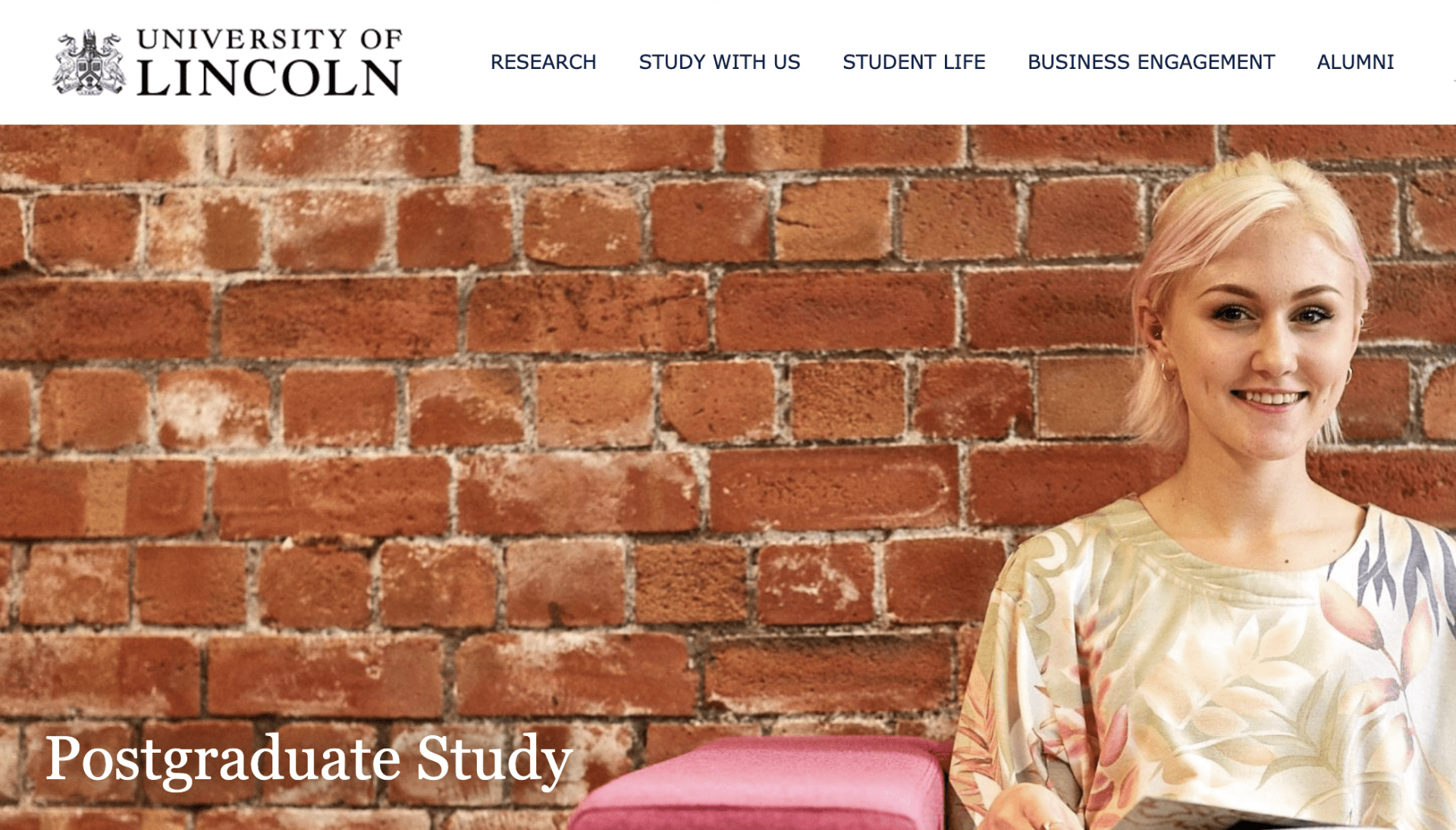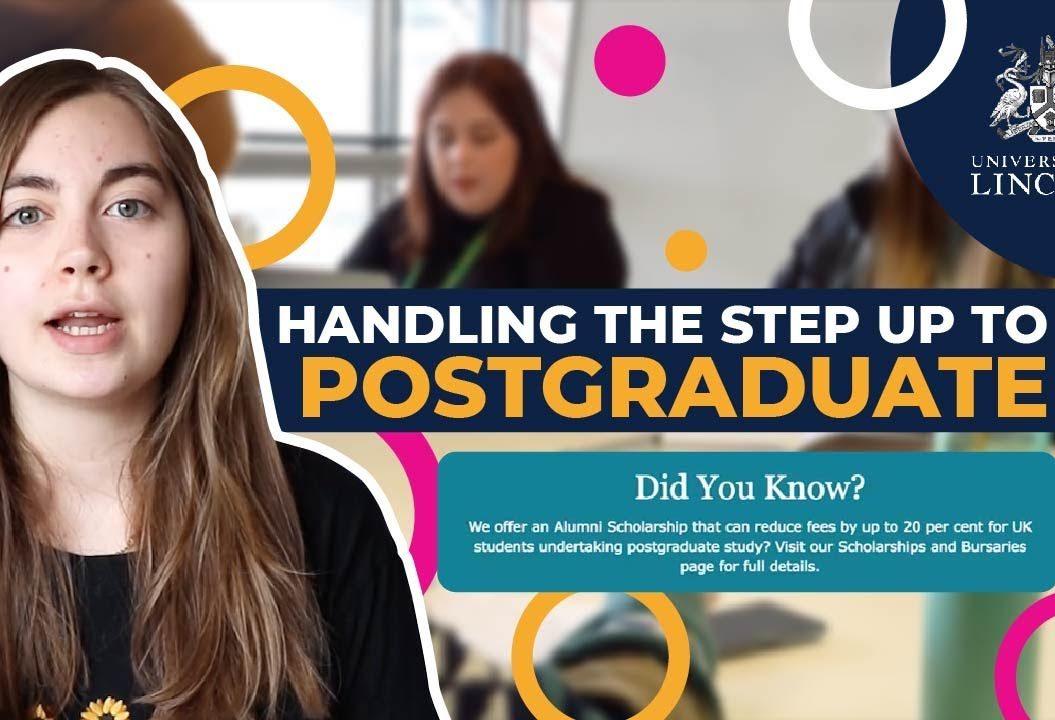Hi there! I'm Rachel, a postgrad student studying Clinical Animal Behaviour from London. I'm a big 80s music fan, and have a secret love for Marvel movies.

Postgraduate study: Everything you need to know
January 11, 2021,
read.
This article is more than 3 years old
So, you’re mid-way through your final year and contemplating what’s next: Do you go for a graduate job? A gap year? Or do you go for a postgraduate programme? Here’s everything you need to know about postgraduate study at Lincoln.

Loans are available!
Student Finance England (SFE) provide an array of loans for postgraduate studies. These should generally cover your tuition fees and your living costs. The following are currently available;
- Postgraduate Master’s Loan – at £11,222 for courses starting in 2020.
- Postgraduate Doctoral Loan – at £26,445 for courses starting in 2020.
- Course-specific funding for healthcare and teaching courses.
- Studentships, school specific.
You can also get funding from charities, trusts and learned societies. These are all subject to eligibility assessed by the government.
If you want to look at examples of how you can fund your Postgraduate Study follow this link to the Lincoln University website: here.
Scholarships and Bursaries are also available!
These are provided by the University and are split between postgraduate taught courses and postgraduate research courses.
For those of you who have spoken to your tutor or course leader about continuing your study at Lincoln, I’m sure you’ve been told about the ‘Alumni Scholarship’ for both taught and research Masters courses. This gives you 20% off tuition fees for most Masters degrees (subject to course) and 10% off for online Masters programmes.
Check out the University of Lincoln’s website below for more scholarships and bursaries. https://www.lincoln.ac.uk/home/studywithus/scholarshipsandbursaries/
So you want to continue your studies in Lincoln, which course is right for you?
The first thing you should look at is whether you want to study for a Masters or a PhD. Masters degrees are usually a lot shorter than a PhD at just 1-2 years long and can either be taught or research based. They are usually a way of advancing specific subject knowledge, to expand into a career in that industry. A PhD is typically 3-4 years, sometimes longer and are predominantly research based. PhDs are a way of contributing new knowledge to the field that you want to specialise in, generally like a long dissertation.
If you think that a Masters is probably the one for you, the next question is do you want it to be research or taught based? Taught degrees are essentially a follow on from your undergraduate degree. They consist of timetabled lectures, seminars and workshops with assessments within modules. Research Masters are more independent, focusing on one or two projects whilst receiving guidance from a supervisor.
How to apply?
Unlike undergraduate degrees, postgraduate applications are through the university itself. It’s super easy and applications are currently open. For UoL students, the fast-track application process is super easy. Just head to Blackboard -> ‘Postgraduate Applications’ along the top of the homepage -> ‘Apply Now’ and fill out the form. Or, alternatively, click here. All that’s required is the course name, an academic referee and a personal statement of 250 words.
The University hosts virtual postgraduate events every week, including weekly Online Drop-Ins and Postgraduate Live Link Up Q&As every Wednesday. For more information check out the Postgraduate Study webpage: https://www.lincoln.ac.uk/home/studywithus/postgraduatestudy/

For further advice, contact UoL’s Postgraduate Enquiry Team by emailing pgenquiries@lincoln.ac.uk.




